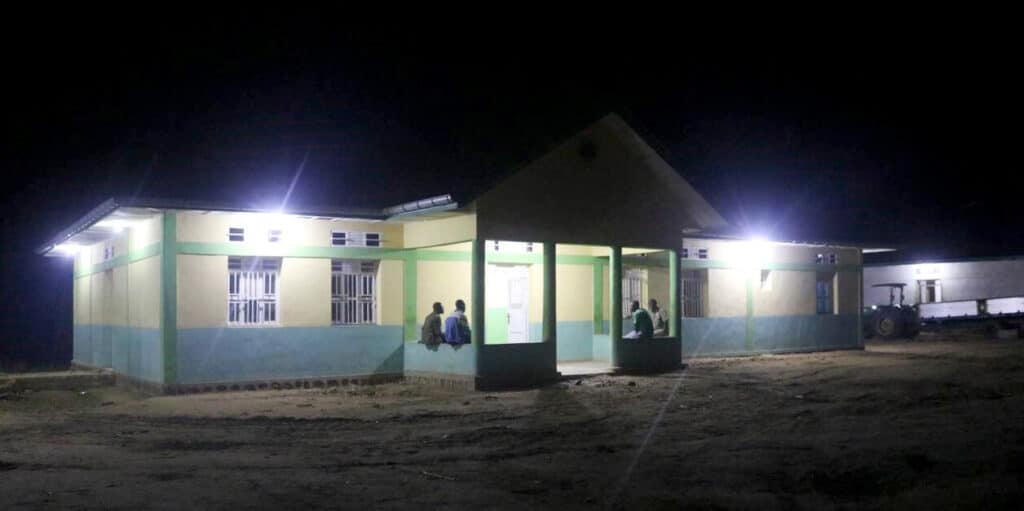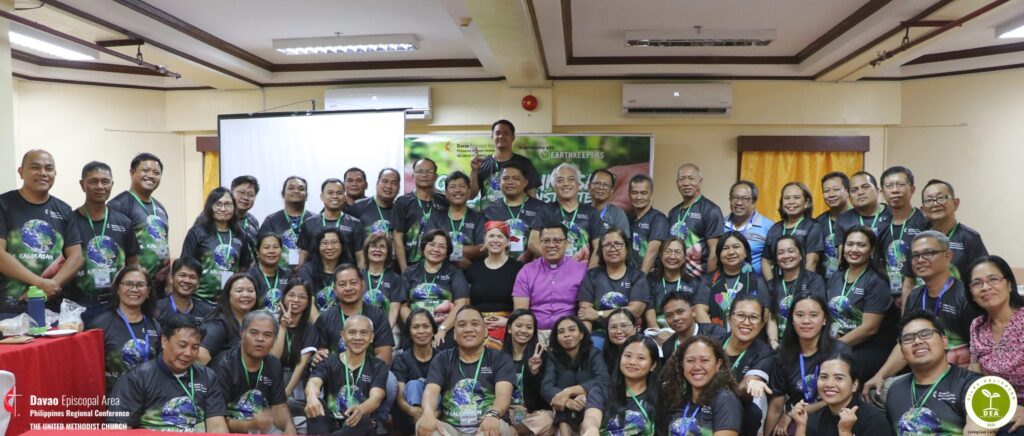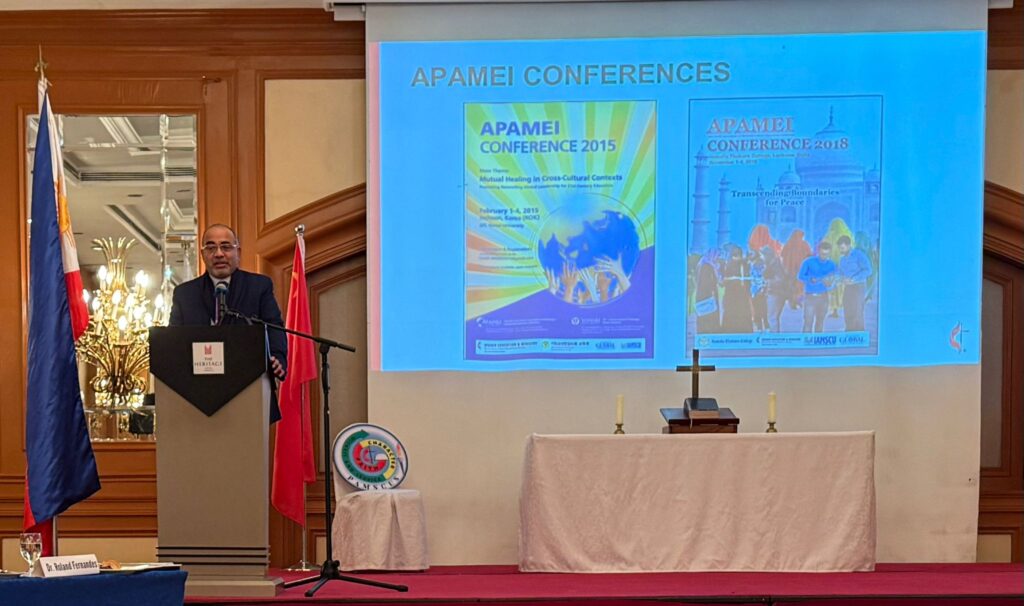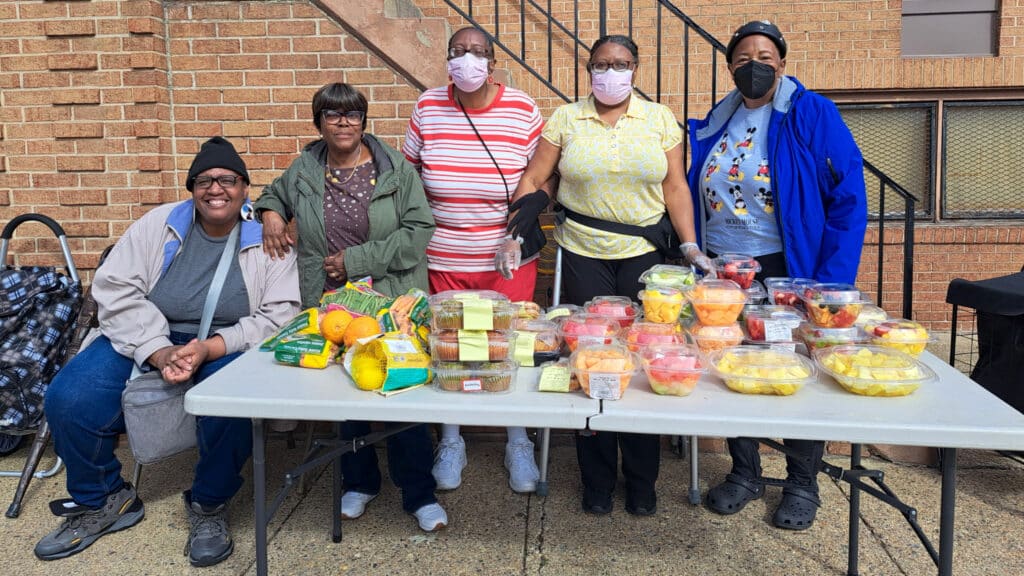By Christie R. House
May 20, 2021 | ATLANTA
Across the wide Lomami River from Central Congo in a rural area called Tunda, United Methodists have a new hospital, once again. For a century, Methodists in East Congo, in partnership with Methodists from the United States and Europe, have provided health care in this remote, tropical region. Even today, there is no other hospital within a 62-mile radius. Without this facility, 100,000 people would lose access to health services.
“It’s really one the most remote locations I have visited,” confirmed Tatenda Mujeni, a senior technical advisor for Global Ministries’ Global Health unit. She was part of a Global Health team that visited Tunda in 2018. The area is named after generations of chiefs from the Tunda family, who still live and work here.
East Congo Methodists tried in 2016 to stabilize the old hospital building, but Dr. Damas Lushima, the United Methodist Health Board Coordinator for the East Congo area, said it could not be saved.
“The old building was in a state of disrepair, with bats building their homes in the rafters and walls overrun by termites. We feared it would collapse. Even after renovation, it did not meet the standards established by our national health care policy,” he said. By 2018, the maternity ward, a smaller separate building, had lost its roof in a severe storm.
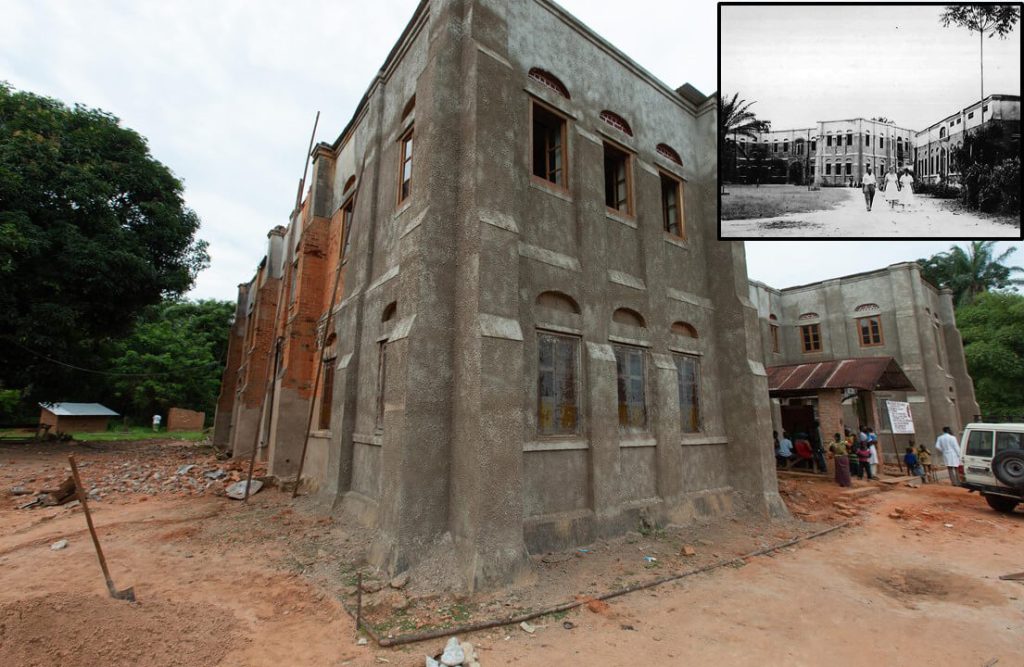
The hospital’s community health workers, many of whom are United Methodist, continued to visit families regularly. They conducted health checks and referred people for more serious conditions, but fewer people were showing up at the hospital. They were losing confidence. Mujeni wondered where women were delivering their babies without the maternity ward.
A durable solution for Tunda
Together, East Congo leaders and Global Health staff decided a hospital was still a critical need in Tunda and the solution was to let go of the old building. During the last two years, nine new buildings have been constructed, making up a hospital compound with separate one-story wards for maternity, surgery, infectious disease, x-ray, lab work, and other medical necessities.
Global Ministries has invested close to half a million dollars in the new Tunda Hospital. With this and other renovations, the Global Health unit, with expertise in the areas of Maternal Newborn Child Health (MNCH), Hospital Systems Strengthening (HSS), infectious disease, primarily through Imagine No Malaria (INM), and Water, Sanitation and Hygiene (WASH), encourages integration of all these areas.
The new buildings are joined by a covered walkway that is airy and open. Contractors drilled a borehole to tap a clean water source and a pump and pipe system sends water where it is needed. A new solar panel array provides the hospital’s electricity for the water system and for lighting. Even at night, the hospital has light, and women no longer deliver their babies in the dark. New sanitation facilities complete the construction.
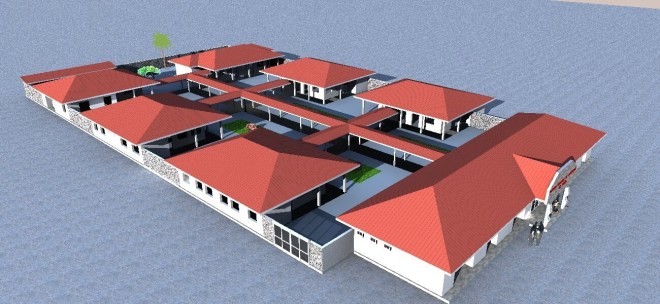
Clean water is also available to people in nearby villages, so community members come to draw water. Clean water goes a long way in preventing disease and improving overall health in the population.
Global Ministries’ Environmental Sustainability unit provided a viable energy solution for Tunda, which was one of the first UMC facilities to receive a solar panel array system. This type of clean, renewable energy systems doesn’t rely on an intermittent or nonexistent electrical grid. Investing in renewable energy solutions contributes to meeting a net-zero carbon emission goal agreed upon by agencies of the UMC, including Global Ministries.
The steps taken to strengthen facilities to handle the relentless toll of malaria, prevalent in most of Africa, also help them prepare for other kinds of epidemics, like Ebola, cholera and COVID-19. At the core of epidemic control and prevention is a strong health system. The new facility in Tunda is preparing that community for whatever lies ahead. East Congo oversees 22 other health facilities that Global Health is also helping to strengthen.
Patients in Tunda say the new one-story, multiple building layout is preferable to the two-story US-style building it replaces. Babo Ndjate, 68-years-old and born and raised in Tunda says his family, including his eight children, have always turned to the hospital for medical care.
“In the old hospital, we felt confined,” he said. “I like the new buildings. I just returned from a week in the new facility with my 16-year-old son, who suffered from malaria. We appreciated the good conditions in which we spent our treatment time at the hospital.”
The evolution of the Tunda Hospital
Medical work in Tunda has a long history and more than one stubborn Methodist missionary who refused to let the remoteness of the region dictate the quality of health care, education or the knowledge and message of Christ.
Dr. William Bryant Lewis and his wife, Zaidee Nelson Lewis, arrived as the first medical missionaries from Mississippi in 1923. They followed the Rev. Ansil and Marzie Lynn, who founded the mission in 1922, missionaries from the Methodist Episcopal Church, South. The first “hospital” at Tunda was a traditional Congo-style pole and mud dispensary. Even then, Lewis envisioned an American-style two-story building in which to conduct the mission’s medical work.



Tunda missionary families: (left) Dr. William Bryant Lewis and Zaidee Nelson Lewis with children; (upper right) Ansil Lynn and Marzie Hall Lynn with their first child; (lower right) Dr. Immanuel Bitsch-Larsen and Valborg Bitsch-Larsen, from Denmark, with their six children. PHOTOS: GENERAL COMMISSION ON ARCHIVES AND HISTORY, MISSION ALBUMS, PORTRAITS.
Zaidee directed the orphanage at Tunda and doubled as a nurse as well. She learned Otetela more quickly than her husband, so while he performed his work he described what he was doing in English and she translated for the Tunda health workers he trained. Lewis finally raised enough funding to break ground for a new hospital in 1943.
The family dedicated a lifetime of service to the Tunda station. They lost two of their three children and Zaidee died in 1955. Dr. Lewis died a year later after he returned to the U.S.
The Lewis family served with Dr. Immanuel Bitsch-Larsen and his wife, Valborg, who arrived in 1952, a Methodist physician and nurse from Denmark. They were stationed in Tunda until 1961, when the process of independence from Belgium developed into civil war. Dr. Bitsch-Larsen never forgot his calling and returned to Tunda for short-term missionary service on his own several times. He made his last trip to Tunda in 2009 at the age of 93, with his son, Dr. Lars Bitsch-Larsen, and his daughter, Gunver, a nurse. In answer to a question from a Danish journalist about why he kept returning, Dr. Immanuel said simply, “One must follow one’s calling.”
Although the buildings of the new Tunda Hospital are completed, the facility is not yet fully functional. Work continues to furnish the wards, supply new medical equipment, and stock medicines, masks and other protective gear. Training is also an ongoing task, but soon, all will come together.
Consider a gift to Abundant Health, Advance # 3021770 to strengthen health care systems in remote places like Tunda.
Christie R. House is a consultant writer and editor for Global Ministries and UMCOR.
